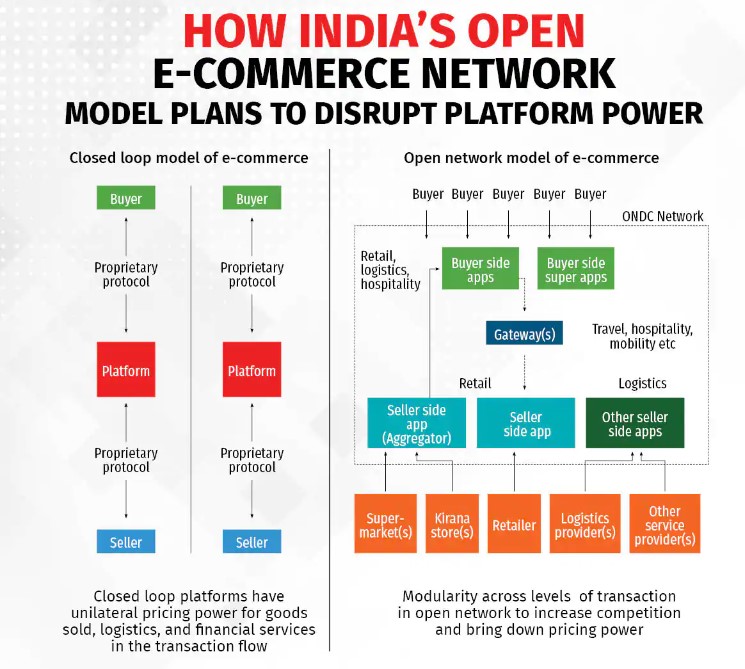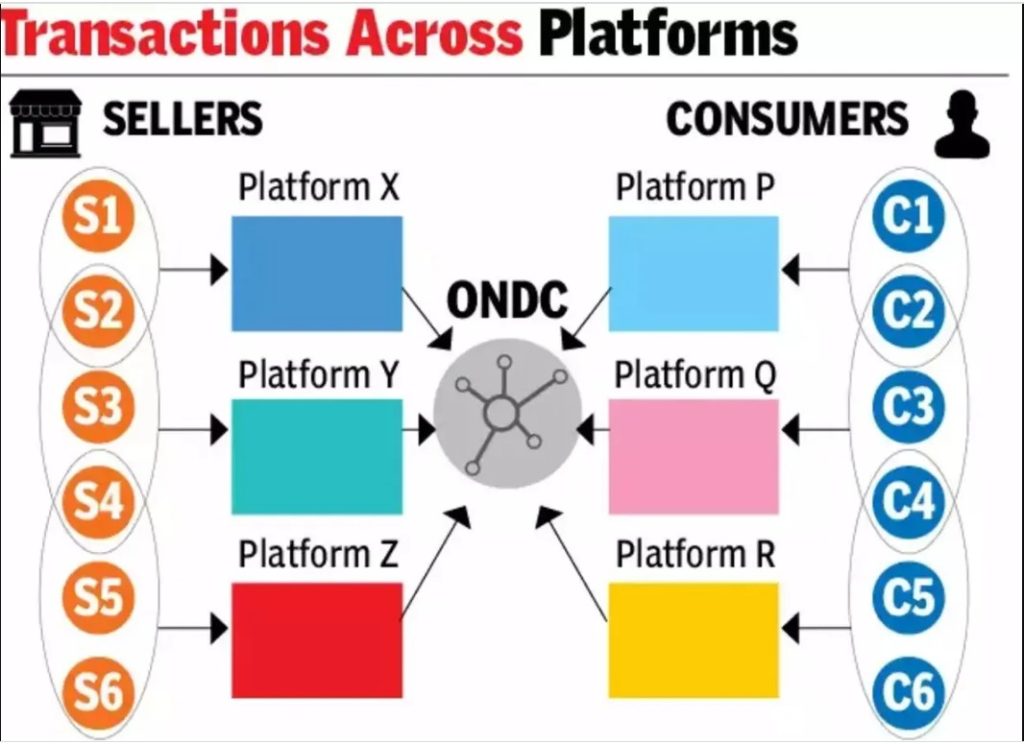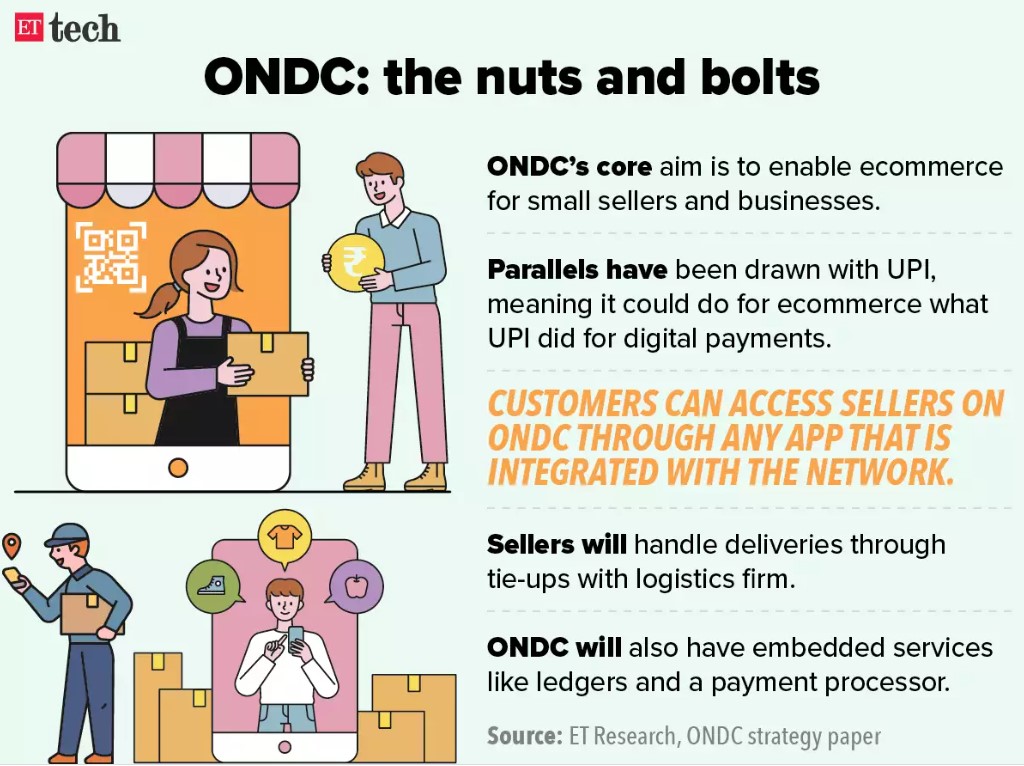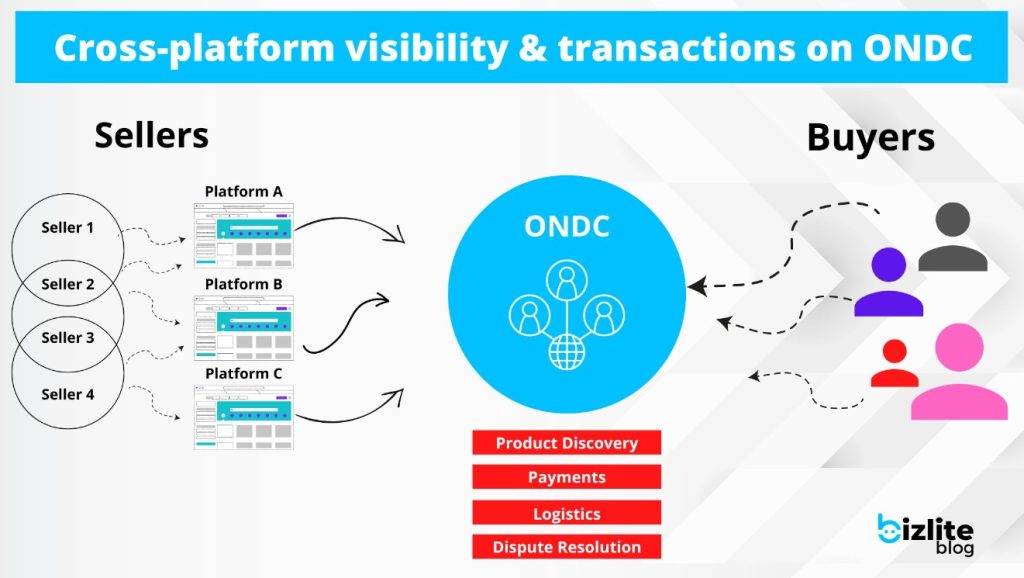In brief
- ONDC is a set of protocols built on open network systems.
- It aims to provide equal opportunities to MSMEs to enter the digital commerce space.
- Increased digital transactions will unbundle credit and supply chain.
- Data security will be maintained by ensuring most of the data available in the open data framework is anonymized.

As the Open Network for Digital Commerce (ONDC) is still in the development phase, specific use cases for the platform are yet to be fully realized. However, here are some potential use cases for the ONDC that could be beneficial for various stakeholders in the digital commerce ecosystem:
- Payment Gateway: The ONDC can be used as a payment gateway to enable secure and transparent transactions between buyers and sellers.
- Digital Identity: The platform can provide digital identity solutions for all stakeholders in the commerce value chain, including buyers, sellers, and service providers.
- Supply Chain Management: The ONDC can be used to track products throughout the supply chain, from production to delivery, enabling transparency and accountability.
- Digital Contract Management: The platform can enable the creation and management of digital contracts between parties, with smart contract functionality to automatically enforce contract terms.
- Logistics: The ONDC can facilitate logistics and transportation services, including last-mile delivery, through partnerships with logistics service providers.
- KYC Verification: The platform can provide Know Your Customer (KYC) verification services to ensure the authenticity of all participants in the commerce value chain.
- Cross-border Payments: The ONDC can facilitate cross-border payments, enabling seamless transactions between buyers and sellers in different countries.
- Customer Support: The platform can provide customer support services, including dispute resolution and complaint handling.
- Marketplaces: The ONDC can support the creation of online marketplaces for different industries, enabling SMEs to reach new customers.
- Taxation: The platform can integrate with taxation systems to enable seamless tax collection and reporting.
- Data Analytics: The ONDC can provide data analytics tools to enable businesses to gain insights into customer behavior and preferences.
- Credit Scoring: The platform can provide credit scoring services to enable SMEs to access financing from banks and other financial institutions.
- E-invoicing: The ONDC can enable e-invoicing, reducing paperwork and enabling faster payments.
- Digital Marketing: The platform can provide digital marketing tools to enable businesses to reach new customers and increase sales.
- Insurance: The ONDC can support the creation of insurance products for SMEs, enabling them to manage risk more effectively.
- Intellectual Property Rights: The platform can enable the registration and management of intellectual property rights for businesses.
- E-commerce Aggregator: The ONDC can enable the creation of e-commerce aggregator platforms, enabling SMEs to reach new customers through multiple channels.
- Asset Tracking: The platform can enable the tracking of assets, including inventory and equipment, throughout the supply chain.
- Export Promotion: The ONDC can support the promotion of Indian exports, enabling SMEs to reach new customers in international markets.
- Social Commerce: The platform can enable social commerce, allowing SMEs to sell products and services through social media platforms.



Wider reach
The open network aims to create new opportunities to curb digital monopolies and support micro, small and medium enterprises and small traders to become hyper-local by getting them online. ONDC is expected to redefine ecommerce by addressing the most significant challenge faced in India and worldwide, which is the walled garden model of platforms that leads to a few large entities and domains and also practises that are against the larger economy.
Uniformity in approach
ONDC will develop an agreement among all participants on interaction protocols. This is an essential step as about 12-13 entities are already in the advanced stages of integration, and another 10-15 on the buyer side have been actively discussing with the network.
Secure interactions
With larger number of participants, data security is bound to attract greater importance. In ONDC, however, intermediaries have the power over data and very little data reaches the end points.